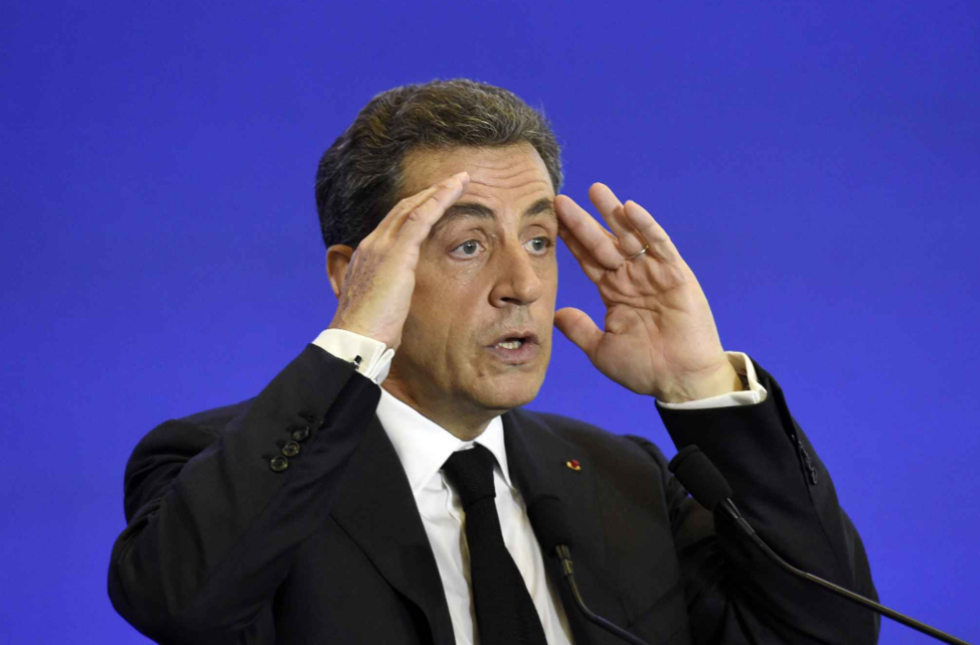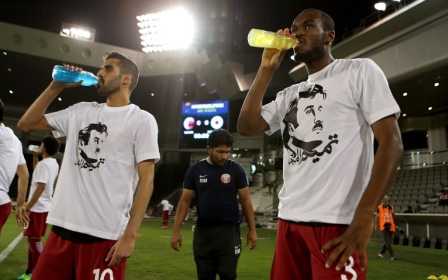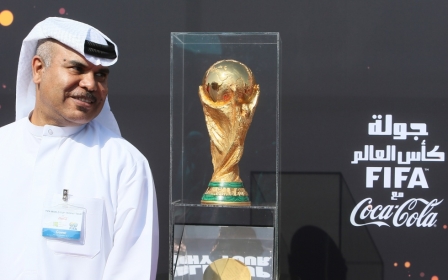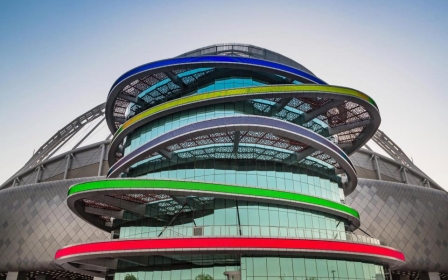Sarkozy embroiled in Qatar world cup bribes probe

Nicolas Sarkozy, the former French president, has been plunged into a scandal surrounding alleged bribes given by Qatar in return for support for the Gulf state's 2022 world cup bid.
Prosecutors in France are investigating whether Sarkozy took kickbacks during the sale of several French companies to Qatari investors, which were negotiated close to the time of Qatar's bid for the World Cup.
The French companies implicated in this latest probe includes waste disposal company Veolia, a French utility firm and the Paris-St Germain Football Club, or PSG.
PSG which was bought by Qatar in 2010 dominated the headlines this week, after it bought Brazilian footballer Neyman from Barcelona for $260m, making him the most expensive football player in the world.
Sarkozy was president when France backed Qatar to host the World Cup.
In 2013, a French football magazine accused him of having "colluded" with the Qataris to get France's football association to support Qatar's bid.
Qatar's bid has been mired in controversy and subject to multiple investigations over claims that it bribed officials to gain hosting rights.
FIFA's former president, Sepp Blatter, was forced to resign after he was caught up in the corruption probe. He is now facing a six-year ban from FIFA.
Close ties with Veolia
According to the Daily Telegraph, French authorities are investigating whether Sarkozy took millions of dollars during the sale of a five percent stake in waste disposal company Veolia by Qatar Diar, a state-owned investment company.
Sarkozy is known to have close ties with former and current executive officials in Veolia, and the chief executive of PSG, Sebastien Bazi, who sold the club to Qatar in 2010.
Investigators want to confirm where $216m, a sum they believe was "syphoned" off the sidelines, went during the Veolia deal.
A spokeswoman for the French national financial prosecutor’s Office said they were “carrying out two separate preliminary inquiries” into Veolia and the World Cup bid.
She said there was no established link between the two inquiries and Sarkozy was not “formally and personally targeted at this stage”.
Critics lambasted the decision to allow Qatar to host the World Cup due to temperatures that can reach as high as 40 degrees, making it impossible to host the tournament during the summer.
Qatar's bid failed to meet FIFA standards
The Qataris recently said it felt "vindicated" of wrongdoing after a report said the Gulf kingdom had failed to meet FIFA standards when bidding for the World Cup.
The report came after a two-year long investigation compiled by FIFA-appointed US prosecutor Anthony Garcia, that detailed numerous attempts by Doha to influence voting officials.
The report revealed how Qatar used bribery tactics which included sponsoring the Confederation of African Football Conference in Angola in January 2010 to market its bid for the World Cup.
Garcia had also raised concerns over the involvement in talks over an energy deal between Qatar and a Thai gas company of an adviser to Thailand's football federation.
Thailand's football federation chief is a FIFA executive committee member.
It was “inappropriate” for such a liquid nitrogen gas deal to be “negotiated through football channels” so close to the vote, which was held in December 2010, Garcia said.
Qatar's use of its Aspire Academy, dedicated to training young players from Qatar and across Africa and Asia, was also used to "curry favour with executive committee members," according to the report.
No suggestion was made that Qatar would lose its right to be the first country in the Middle East to host the World Cup.
Middle East Eye propose une couverture et une analyse indépendantes et incomparables du Moyen-Orient, de l’Afrique du Nord et d’autres régions du monde. Pour en savoir plus sur la reprise de ce contenu et les frais qui s’appliquent, veuillez remplir ce formulaire [en anglais]. Pour en savoir plus sur MEE, cliquez ici [en anglais].




